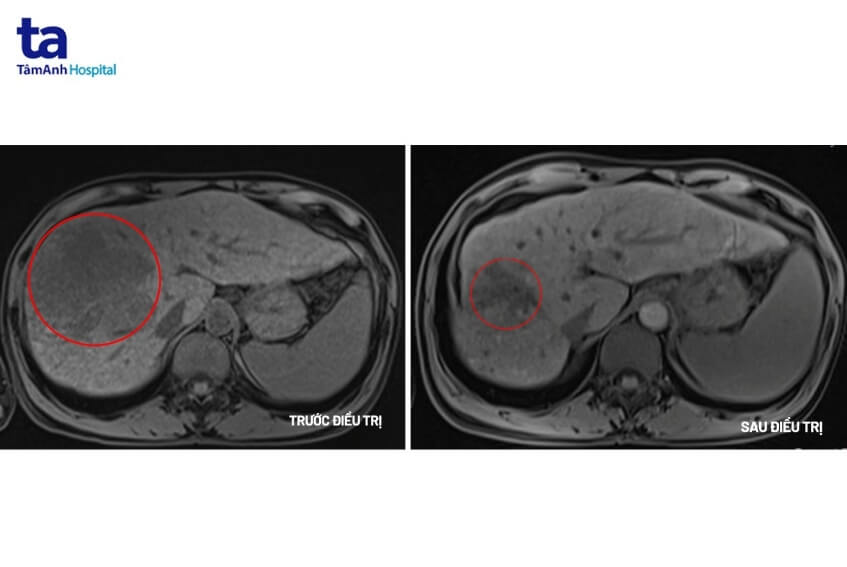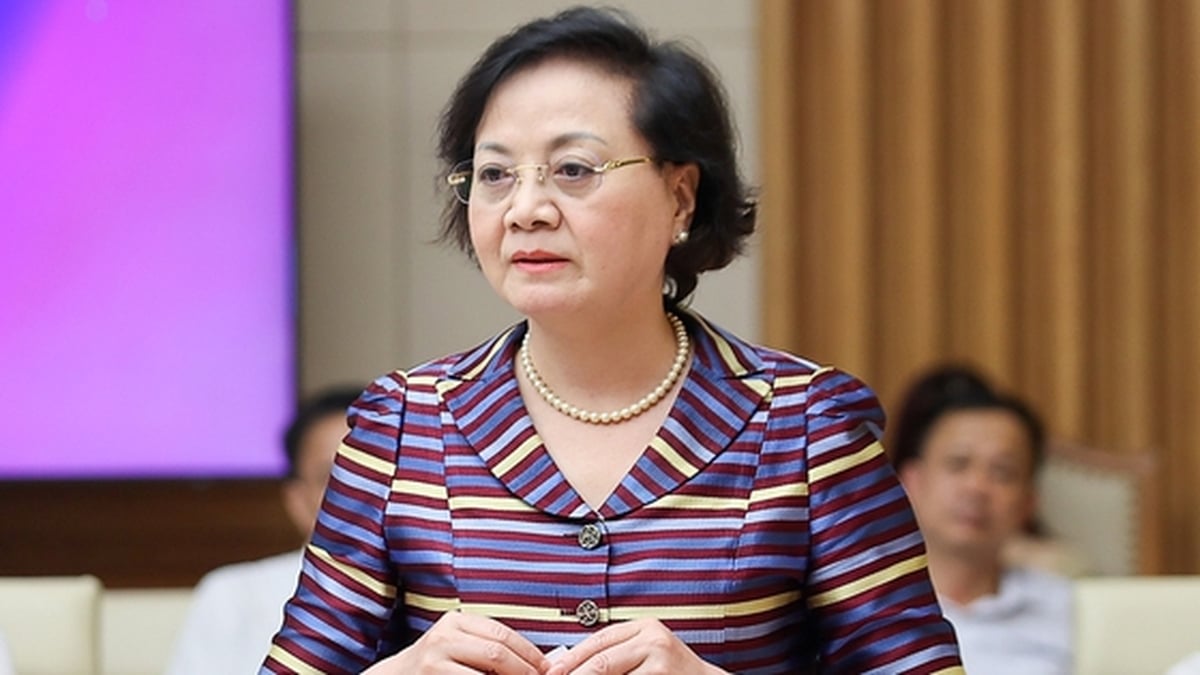Dr. Vu Huu Khiem - Head of the Oncology Department of Tam Anh General Hospital in Hanoi said that Mr. Nguyen Minh Chau (34 years old, Quang Ninh) came to the clinic when he had signs of pain in the right hypochondrium, fatigue, and slight swelling in both legs. Through clinical examination, he found signs of liver cancer, so Dr. Khiem ordered the patient to perform some tests to confirm.
Liver cancer marker test showed AFP index was 9412ng/mL (normal people this index is <10ng/mL); AFP L3 81.3% (normal threshold <10%); PIVKA II=56661 mAu/mL (normal threshold <40 mAu/mL). MRI showed a large tumor in the right liver measuring 10x10x12cm with HCC, portal vein thrombosis and cirrhosis. The results showed that the patient had late-stage liver cancer.
With experience in successfully treating many cases of liver cancer, Dr. Khiem and his team quickly selected an immunotherapy regimen combining monoclonal antibodies that inhibit angiogenesis (Atezolizumab and Bevacizumab) for the patient. This is the latest combination therapy applied in the treatment of liver cancer and many other cancers with the advantages of increasing response rates, increasing treatment effectiveness, and having fewer side effects, helping to prolong the life of patients with late-stage liver cancer.
After 12 cycles (about 6 months) of treatment with monoclonal antibody combination immunotherapy, the liver tumor was reduced by more than 50% in size, the patient had no pain symptoms, no abdominal fluid, liver and kidney function returned to normal, and quality of life improved. The patient continues to be treated and closely monitored to improve effectiveness.

Image of tumor before and after treatment. Photo: Tam Anh General Hospital
Explaining the mechanism of action of immunotherapy, Dr. Khiem said that this is a cancer treatment method by activating the patient's immune system to fight cancer cells through many different methods. The body's immune system has T cells that are likened to "good soldiers" whose task is to destroy abnormal cells that appear in the body. Normal human cells are not attacked by the immune system thanks to immune checkpoint inhibitors on the cell surface. Cancer cells also take advantage of these immune checkpoints to avoid being recognized and attacked by the immune system. Immunotherapy is the use of drugs to block immune checkpoints on the surface of cancer cells, helping the immune system recognize and send T cells to destroy cancer cells.
Talking about monoclonal antibodies in cancer treatment, Dr. Khiem assessed that this is a new and effective method in cancer treatment. In Chau's case, monoclonal antibodies are used to prevent the development of blood vessels. A malignant tumor will need a blood supply to survive and develop. At this time, monoclonal antibodies are used to prevent the interaction between cancer cells and proteins necessary for the development of new blood vessels, thereby cutting off the blood supply to the tumor.

Dr. Vu Huu Khiem is consulting a patient visiting the Oncology Department, Tam Anh General Hospital, Hanoi. Photo: BVCC
Doctor Khiem affirmed that immunotherapy drugs and monoclonal antibodies can be combined with other treatment methods such as chemotherapy, surgery, and radiotherapy to help patients receive radical treatment. These new drugs have been researched, successfully applied, and have been proven to benefit cancer patients. Currently, Tam Anh General Hospital System owns many of the latest immunotherapy drugs for cancer treatment.
Globocan 2020 statistics show that the rate of new liver cancer cases in Vietnam is 26,418 people per year. Liver cancer has the highest number of deaths with 25,272, accounting for 21% of the total number of cancer deaths, 3.8 times higher than the total number of deaths due to traffic accidents in 2020 (6,700 cases). Up to 77% of liver cancer patients are men, the disease can occur at any age. Therefore, liver cancer screening is an effective measure to help detect early and treat promptly. Especially in cases of chronic hepatitis or cirrhosis due to any cause. If there are signs of pain in the hypochondrium (abdomen below the ribs), loss of appetite, unexplained weight loss, fatigue... you should go to a medical facility immediately for examination.
PV
Source



























![[Photo] National Assembly Chairman attends the seminar "Building and operating an international financial center and recommendations for Vietnam"](https://vphoto.vietnam.vn/thumb/1200x675/vietnam/resource/IMAGE/2025/7/28/76393436936e457db31ec84433289f72)









































































Comment (0)